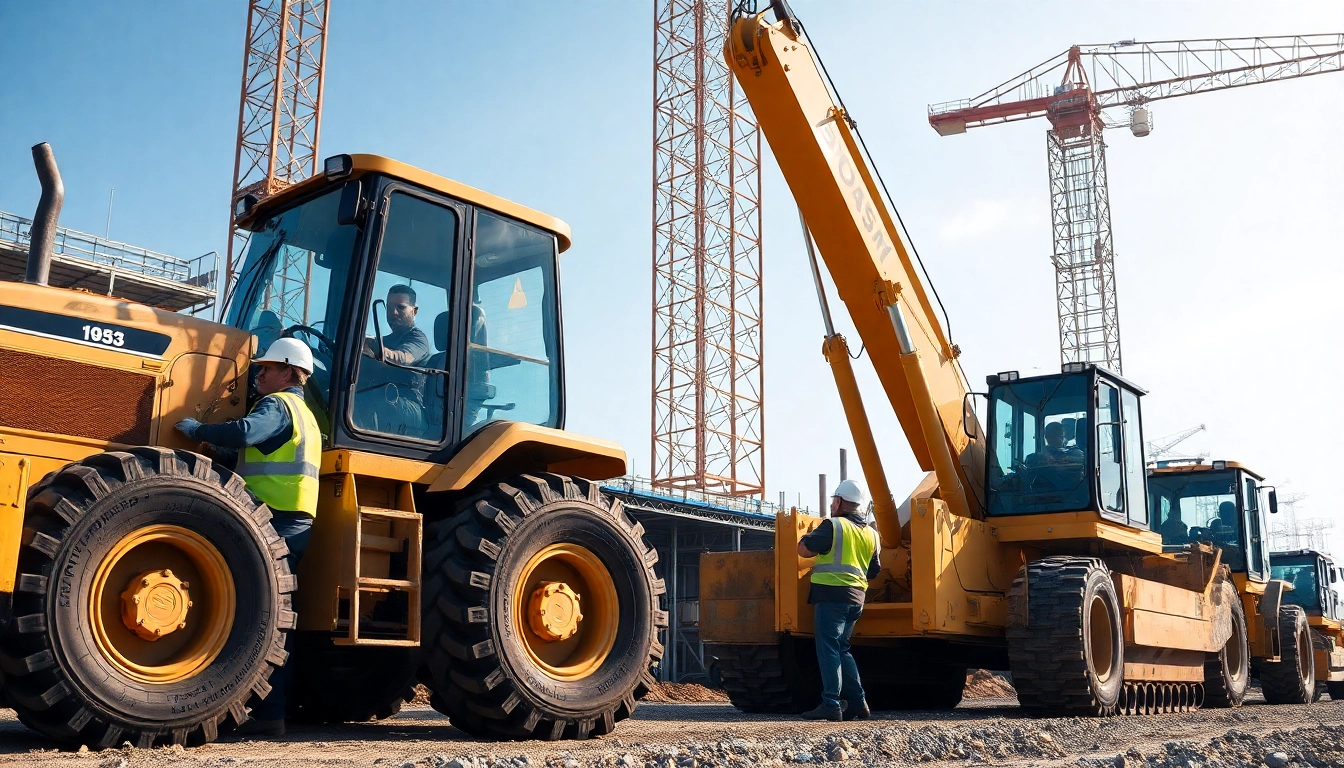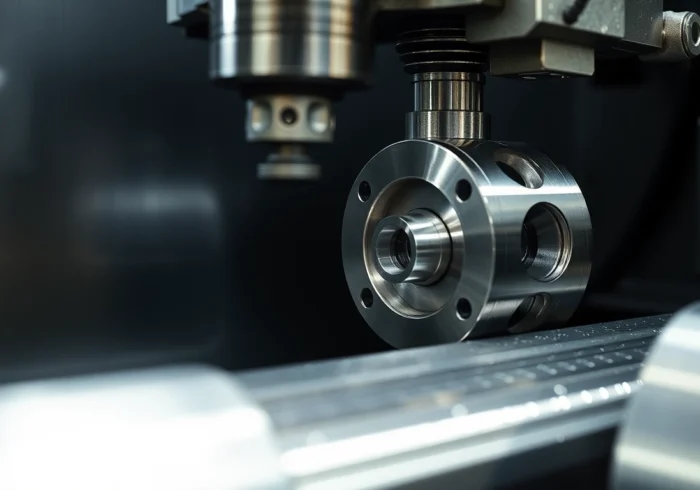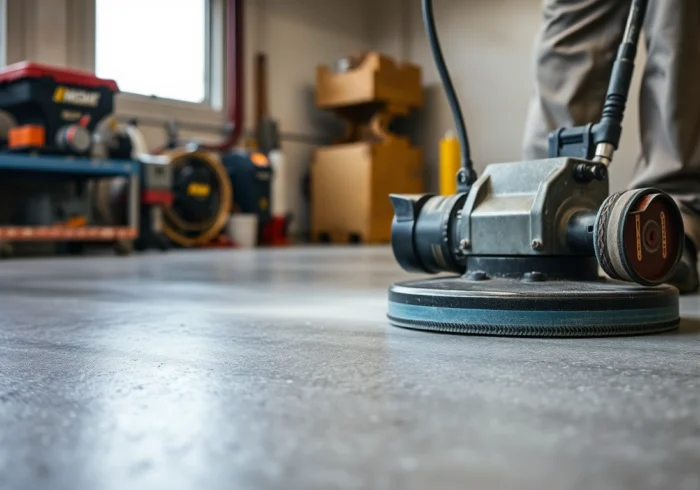Maximize Your Construction Projects with Reliable Equipment Rental Services in the UK
In the fast-paced world of construction, efficiency, cost-effectiveness, and reliability are critical factors that determine project success. Contractors, site managers, and construction firms continually seek ways to optimize operations while maintaining high standards of safety and quality. One of the most effective strategies to achieve these goals is through construction equipment rental.
This approach offers flexibility, access to cutting-edge machinery, and significant cost savings, especially in the UK where the construction sector is experiencing robust growth. Whether you are undertaking a small renovation or a large-scale infrastructure project, partnering with a reputable equipment rental provider enables you to access a wide variety of tools and machinery tailored to your specific needs. This comprehensive guide explores the benefits, selection criteria, best practices, future trends, and practical insights related to construction equipment rental in the UK, empowering you to make informed decisions that elevate your project outcomes.
Understanding Construction Equipment Rental: Benefits and Opportunities
Why Renting Equipment Is Cost-Effective for Construction Projects
Cost management is among the top considerations for any construction project. Purchasing equipment involves significant capital expenditure, ongoing maintenance costs, storage, and depreciation. Renting alleviates many of these financial burdens by converting capital costs into operational expenses, which can be more predictable and manageable.
Furthermore, rental companies often absorb the costs associated with maintenance, repairs, and equipment updates, ensuring that the machinery remains in optimal condition without additional input from your team. This means fewer unforeseen expenses and reduced downtime due to equipment failure. According to industry reports, rental equipment can reduce overall project costs by up to 20%, making it a financially sound strategy, especially for projects with fluctuating or short-term equipment needs.
Additionally, renting allows you to access the latest technology and machinery enhancements, which can improve productivity and safety standards without the capital investment required for ownership.
To explore further, visit construction equipment rental platforms for tailored solutions that fit project scopes and budgets.
Key Advantages of Equipment Rental Over Buying
- Flexibility: Rental allows quick scaling up or down based on project phases. You can rent specialized equipment for specific tasks without long-term commitments.
- Access to Advanced Technology: Rental providers continually update their fleets, giving you access to newer, more efficient machinery without purchasing new equipment.
- Reduced Maintenance and Storage Hassles: Rental companies handle upkeep, repairs, and logistics, freeing your team to focus on core construction activities.
- Cost Savings: Eliminates the costs associated with equipment depreciation and storage, and provides predictable budgeting through rental fees.
- Lower Risk: Renting limits exposure to obsolete machinery and market value fluctuations, safeguarding your investment.
Types of Construction Equipment Available for Rental
The spectrum of equipment available for rental in the UK is extensive, covering everything from essential tools to heavy machinery. Typical categories include:
- Earthmoving Equipment: Excavators, bulldozers, backhoe loaders, and skid-steer loaders facilitate excavation, grading, and site preparation.
- Material Handling Equipment: Cranes, forklifts, telehandlers, and lifting devices support loading, unloading, and positioning heavy materials.
- Compaction and Groundwork Tools: Plate compactors, rammers, rollers, and vibrators assist in achieving stable foundations.
- Concrete and Masonry Equipment: Mixers, power floats, poker vibrators, and cut-off saws streamline concrete work and finishing tasks.
- Power Tools and Handheld Equipment: Drills, breakers, sander machines, and cutting tools for detailed and finishing work.
- Specialized Equipment: Environmental control units such as portable air conditioners, generators, and emissions control systems.
Leverage local rental providers such as Rentmas to access a comprehensive fleet suited for diverse project requirements.
Choosing the Right Construction Equipment Rental Partner
Factors to Consider When Selecting a Rental Company
Partnering with a reliable rental provider is crucial to ensure project continuity, safety, and quality. Consider the following factors when evaluating potential partners:
- Reputation and References: Check for customer reviews, testimonials, and industry reputation. Trusted providers like Sunbelt Rentals and SER boast extensive networks and positive feedback.
- Rental Fleet Diversity and Availability: Ensure the provider offers the equipment you need with flexible rental terms. Confirm availability for the desired rental period.
- Pricing Transparency: Transparent pricing models prevent unexpected costs. Request detailed quotes inclusive of delivery, pickup, and insurance options.
- Geographical Coverage: Local providers or those with UK-wide reach, like Boels Rental or Nixon Hire, facilitate easier logistics and support.
Evaluating Equipment Quality and Maintenance Standards
Equipment reliability hinges on rigorous maintenance and quality standards. Ask potential rental companies about their maintenance protocols, inspection routines, and replacement policies. Leading providers adhere to OEM (Original Equipment Manufacturer) standards and keep detailed maintenance logs, reducing risks of breakdowns and safety hazards.
How to Ensure Customer Support and Service Reliability
Effective support encompasses prompt delivery, technical assistance, on-site training, and responsive after-sales service. Companies like EZiRent provide 24/7 customer support, ensuring your project stays on track even in urgent situations.
Best Practices for Efficient Equipment Utilization
Planning Your Equipment Needs in Advance
Early planning reduces last-minute shortages and logistical challenges. Conduct a detailed needs analysis, considering project phases, workload, and equipment lifespan. Use project management tools to coordinate equipment schedules, reducing idle time and avoiding overlaps.
Training Staff on Equipment Operation and Safety
Proper training minimizes accidents and equipment damage. Ensure staff are certified and familiar with safety protocols, manufacturer instructions, and best operational practices. Rental companies often provide operator training or technical support as part of their service.
Scheduling and Logistics for Seamless Rental Experience
Coordinate delivery and pickup schedules to align with project timelines. Effective logistics management avoids delays and ensures equipment is available when needed. Use digital tracking systems for real-time status updates and maintenance alerts.
Maximizing Project Outcomes with Construction Equipment Rental
Strategies to Improve Productivity and Timeline Adherence
Utilize the right machinery at each project stage, and optimize workflows by assigning skilled operators. Regular maintenance and adherence to safety standards also prevent downtime. Incorporate flexible rental agreements that accommodate project scope changes without penalty.
Reducing Downtime and Maintenance Costs
Proactive maintenance, regular inspections, and choosing reputable rental providers contribute to equipment uptime. Establish clear communication channels for reporting issues promptly, ensuring swift resolutions. Combining equipment rental with on-site supervision can further reduce unforeseen delays.
Case Studies: Successful Construction Projects Using Rental Equipment
For example, a large commercial development in London reduced costs by 15% and completed ahead of schedule by leveraging a comprehensive rental fleet from local providers. Through meticulous planning, staff training, and maintaining equipment in prime condition, the project achieved high productivity levels with minimal disruptions.
Future Trends in Construction Equipment Rental
Technological Innovations and Smart Equipment Solutions
The integration of IoT (Internet of Things) sensors, GPS tracking, and remote diagnostics is transforming equipment rental. Smart machinery provides real-time performance data, predictive maintenance alerts, and enhanced safety features, allowing firms to optimize utilization and minimize breakdowns.
Environmental Sustainability and Green Equipment
Eco-friendly construction solutions are gaining momentum. Rental providers now offer electric or hybrid machinery, low-emission generators, and sustainable materials handling equipment. Such investments support compliance with UK environmental regulations and improve corporate social responsibility profiles.
Market Growth and Opportunities in the UK Construction Sector
The UK construction industry anticipates continued growth, driven by infrastructure projects, urban regeneration, and sustainability initiatives. This expansion presents opportunities for rental companies to expand their fleets and enhance service offerings. Conversely, contractors benefit from diversified access to the latest equipment without heavy capital outlays.



